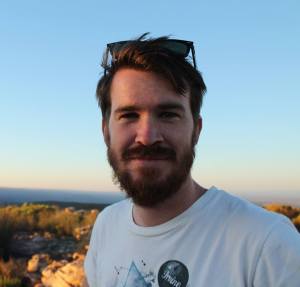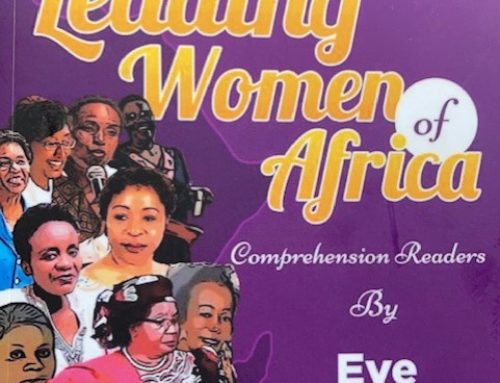Growing up I was never the world’s greatest lover of animals. I liked dogs because they were fun and horses because well… Zorro, but most of the rest of the animal kingdom tended to inspire fear more than awe.
I remember as a kid going to the Cape Town museum and having nightmares of blue whales eating me. Later I developed a slightly irrational fear of birds and monkeys… So it was quite a surprise (to myself especially) when I turned vegetarian. What follows is mostly a journey of theology, but hopefully one that is relatable beyond theology.
My journey towards vegetarianism began when I got a bit disillusioned with Evangelical Christianity. I had grown up most of my life in an Evangelical community which emphasised salvation from the world as the greatest hope for a Christian. And this idea began to trouble me.
One of the biggest turning points for me in my faith and my thoughts on vegetarianism came about when I started reading a book by NT Wright called ‘Surprised by Hope’. I’m quite confident the word vegetarianism doesn’t even appear in the book, so I’m sure Wright would be surprised about my culinary conversion.
In the book Wright argues that many in the Church have misunderstood the hope of Christianity. Instead of God plucking us up and depositing us in Heaven (as I had been taught most of my life), the real message is that God is ushering in a New Creation. God isn’t going to throw this Creation away and build us a new home, but rather, this home which we have will be transformed (and is being transformed). And in this New Creation there will be no killing and no pain and no hatred.
At one point Wright argues that if we believe that in the future there will be peace, then why do we not think to live out that peace today. If in the future we believe the lion will lie down with the lamb, why do we not start living that future now? That, surely, is what bringing the Kingdom of God is all about.
This really got the cogs turning. NT Wright, as one of the foremost Pauline scholars, spent a good section of ‘Surprised by Hope’ talking about Paul’s view of the cosmic nature of Christ’s redemptive act. Now I can’t help but notice it in, for example, Colossians 1 and Ephesians 1 and plenty others. Plus, when you read John you can’t miss the cosmic scope of Christ’s redemption. Christ died to reconcile all things, and if that really means ‘all things’ then what about animals or the environment? Should that reconciliation not also be extended to them?
And what about when Jesus speaks about God looking after the birds of the fields. And how do we understand passages in the Bible that talk about animals worshipping God, for example, Psalm 148, Job 12, and Psalm 36? One of the final moments for me was thinking about the lines in the popular hymn “All Creatures of Our God and King, lift up your voice and with us sing ‘O Praise Him’”. How can animals join us singing about our God and King if we’ve eaten them? If Christ died to reconcile animals (as part of the ‘all things in heaven and on earth’) then surely my killing of them stops them from celebrating in that redemption.
Now I’m never a fan of throwing Bible verses around, because in the end it becomes a competition of who can find more verses to back up their point. Truthfully it’s quite easy to find plenty of Bible verses to back up any opinion.
In the end I chose to align myself with a vision of Christianity that leads to less violence and killing and leads to more creatures being able to share in the redemptive work of Christ. I believe in a coming Kingdom where the lion will lie down with the lamb, where the oppressor will lie down with the oppressed, where the hunter will lie down with the hunted and there will be peace on earth. And then, and only then, will we have a New Creation.
Perhaps if you’re not a Christian this might all seem like mumbo jumbo, I’ve also been influenced by many arguments that are not exclusively Christian.
One of the ideas that finally convinced me to become a vegetarian was thinking about evolution and my relation to other animals. If we share a common ancestry with animals that kinda makes them family. Perhaps instead of seeing myself as the master species with some right to kill and enslave animals for my personal pleasure, I could see myself as an older brother whose decisions have real impact on fellow creatures.
People like Peter Singer have great arguments from a utilitarian perspective pointing out that we should increase the overall good and decrease the overall pain. If we don’t need to be eating animals (especially such intelligent and social creatures like pigs and cows) why do we? Because we’re stronger? Because it’s nicer for us? Because they’re not as developed as we are? Well, that quickly starts to sound like arguments used to support slavery.
I’m not saying you have to be a vegetarian to be a morally good person. But rather, I want to ask the question – How does it fit in with your view of the world?
If you believe that Christ has reconciled all things in heaven and on earth, then what does that mean about how we treat other creatures on earth? If you believe that we share a common ancestry with animals, how does that influence our understanding of our ‘right’ to exploit them? Do we want to create a world where there is less exploitation and abuse of the defenceless?
If so, maybe it would be good to take some time to think about why you eat meat?
You can read more from Majay on a variety of topics from the serious to the ridiculousical on his blog by clicking here.
[To read Bryan Hash’ story about his journey towards vegetarianism, click here]






[…] Meet Michael-John Philip aka MJ […]
[…] [To read the story of MJ and his move towards vegetarianism, click here] […]
Woah! This theology on creation and living out that peace THROUGH vegetarianism … Kinda blew my mind. Thank you for sharing.